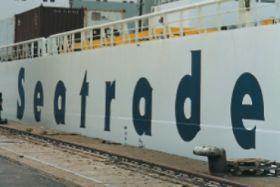
Seatrade has been appointed as the carrier for conventional reefer shipments of this year’s South African summer citrus crop to the US, an appointment that brings to an end the long-standing shipping relationship between the industry and the Capespan subsidiary, Cape Reefers.
South Africa is expected to export around 50,000 tonness of citrus to the US this year, with the bulk of the fruit shipped in conventional reefer vessels which are favoured by the industry, because of the complexities involved in dealing with difficult phytosanitory protocols which apply to South African citrus shipments to the country.
Confirming the appointment of Seatrade, Western Cape Citrus Producers’ Forum CEO Joretha Geldenhuys noted that the industry had decided to appoint the company because it offered more favourable terms and conditions.
Seatrade said in a statement that it had a fleet of more than 30 US Department of Agriculture-approved vessels of varying sizes, and would subsequently be able to provide the quality, flexibility and regularity that a service to the all important US market required.
Alex van Drimmelen, Seatrade's trade manager for South Africa, expressed his satisfaction with the arrangement and reiterated that Seatrade is geared, excited and ready to provide a successful shipping service given the group's network of representatives in the country (Anlin Shipping) as well as in the US (Seatrade USA). In addition arrangements are being made with various role players such as PPECB, ship agents, FPT (Cape Town) and Holt (Philadelphia) to ensure a smooth operation when shipments commence in the second-half of May 2010.
Anlin Shipping spokesman Anton du Preez confirmed that the first of eight shipments would start at the end of May. “We will carry around 2.7m cartons of fruit during the season, starting with smaller ships at the start of the season according to the volumes available,' he said.
Gerrit van der Merwe, chairman of the Western Cape Citrus Producers' Forum, had previously confirmed that the South African industry intends to grow its sales in the Mid-West and Western US by 20 per cent this season.
He said that new initiatives in 2010 to support the export programme to the US would include the option of using smaller conventional reefer vessels and ensuring a more efficient container programme.
Cape Reefers had been the preferred shipper of South African citrus to the US since the export programme started, and the loss of the contract will be a huge blow to the company. In announcing the Capespan Group's financial results for 2009 recently, group managing director Neil Oosthuizen stated that the strategy, in terms of future shipping services, would receive careful consideration and planning.
The dramatic increase in the use of containers on all shipping routes from South Africa has left the US programme as the only one which is still dominated by conventional reefer shipments. More than 85 per cent of the citrus is shipped in this way, although the use of containers has increased in recent years during the early and late season when there is not enough fruit available to fill a conventional vessel.
The shipping protocol requires that South African citrus must remain under phyto-steri conditions for 24 days before it can be off-loaded in the United States. 'Ensuring that we meet these conditions makes this one of the most difficult and expensive supply programmes in the world,' said Mr Van der Merwe.



